Background
On 28 June 2022, the Saudi Cabinet of Ministers approved the New Companies Law, and it was published in the official gazette (Umm Al Qura newspaper) on 4 July 2022 pursuant to Royal Decree No. (M/132) dated 01/12/1443H (the “New Law”).
We anticipate that the New Law will come into effect on or around 1 January 2023, replacing the previous Companies Law issued pursuant to Royal Decree No. (M/3) dated 28/01/1437H (corresponding to 10/11/2015G) (the “Old Law”) and the Law of Professional Companies issued pursuant to Royal Decree No. (M/17) dated 26/01/1441H (corresponding to 25 September 2019). The implementing regulations of the New Law (albeit are yet to be published) are expected to be released prior to the New Law taking effect.
This publication sets out our analysis on the key changes to be introduced by the New Law.
Key Changes of the New Law
Creating one unified legislation for Companies
The New Law largely unifies KSA rules related to commercial companies, professional, and non-profit companies under one law.
Company names
The New Law removes restrictions on company names and now allows for greater flexibility on naming a company.1
Family Business Charter
Family-owned companies may enter into a binding family business charter as part of the articles of association of a company, or create it separately, to regulate the family’s ownership in the company, its governance, management, work policies, employment of relatives, and distribution of profits.
Joint Stock Companies (“JSCs”)
The New Law introduces a number of new changes to the rules of establishing and the governance of JSCs, which include:
- the ability to establish a JSC with only one shareholder;
- removing the requirement to conduct an incorporation assembly;
- removing the cap on the maximum number of board members;
- allowing the issuance of different class of shares such as ordinary, preference, and redeemable shares, with varying rights and obligations;
- removing the maximum cap for the remuneration of board members; and
- granting the general assembly with powers to determine the benefits and remuneration of board members according to fair standards.
Simplified Joint Stock Company (“Simplified JSC”)
The New Law introduces a new type of entity, being the Simplified JSC. The objective of introducing a Simplified JSC is to meet the needs and requirements of a fast-growing start-up and venture capital market in KSA.
The key features of a Simplified JSC include:
- no minimum capital requirements;
- issuance of separate classes of shares with varying rights and obligations;
- the company may be managed by one chief executive officer, one or more managers, or a board of directors; and
- general assemblies (ordinary and extraordinary) are replaced with simpler shareholders’ meetings.
Issuance of debt and finance instruments
The New Law allows limited liability companies (“LLCs”) to issue negotiable debt and finance instruments.2
Company Transformation, Merger, and Division
Chapter 10 of the New Law sets out rules in relation to the transformation, merger, and division of companies, and the new rules provide more clarity than the rules under the Old Law on the rights and obligations of interested parties on the conversion, merger, or dissolution of a company. The Implementing Regulations are intended to provide additional details in relation to Chapter 10 of the New Law.
Old Law vs New Law: comparison of key provisions
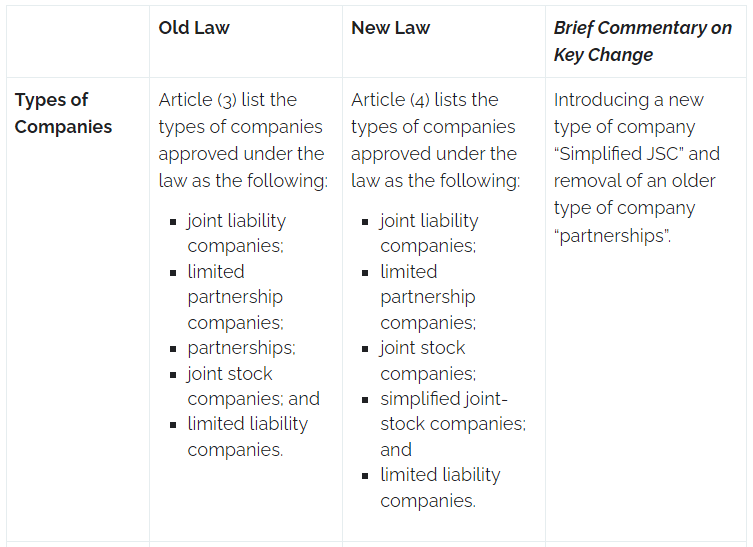
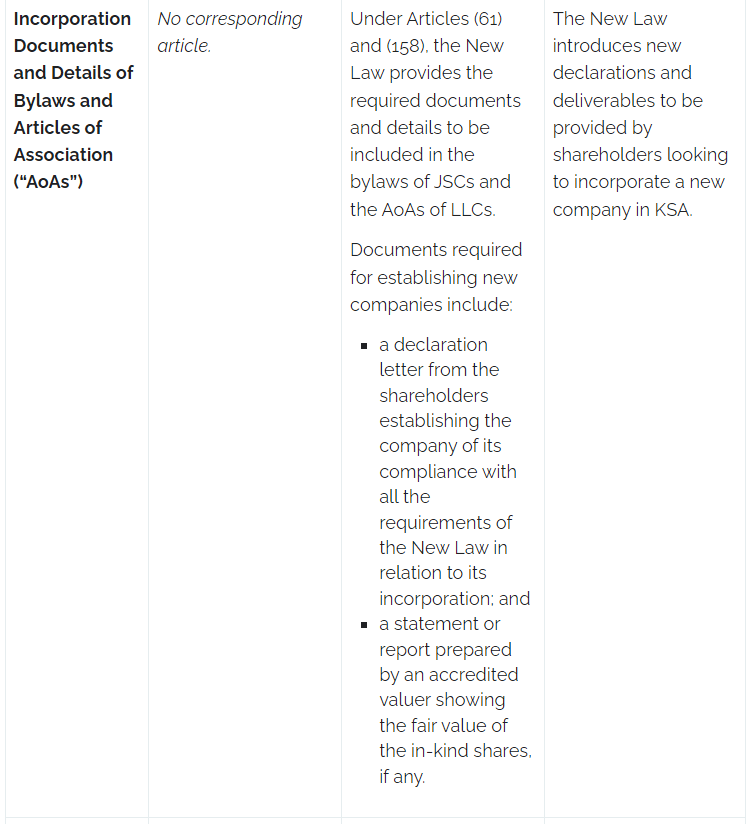
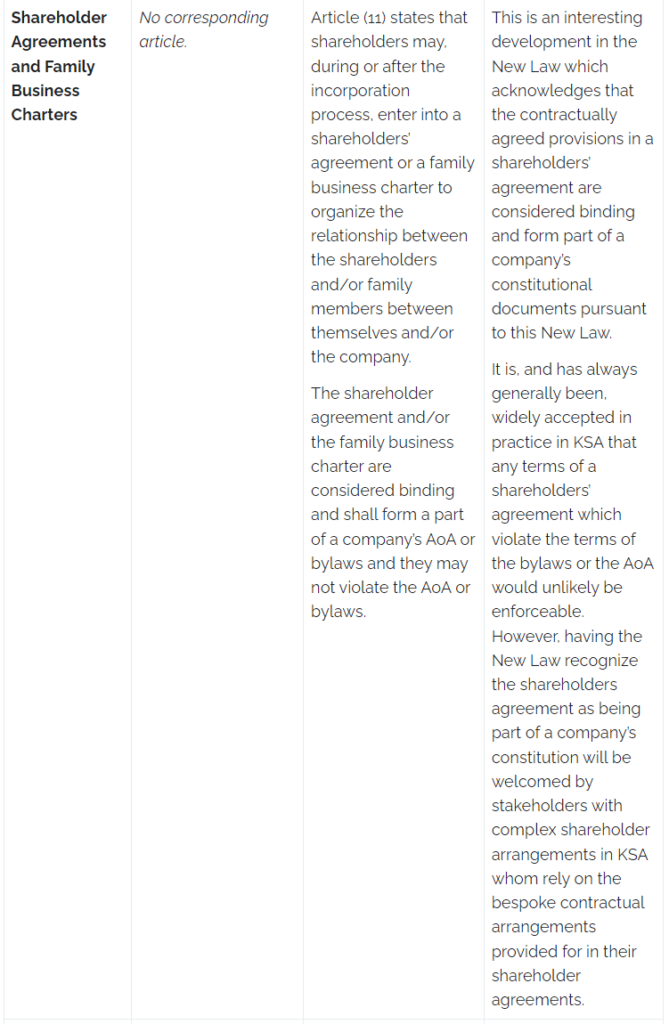
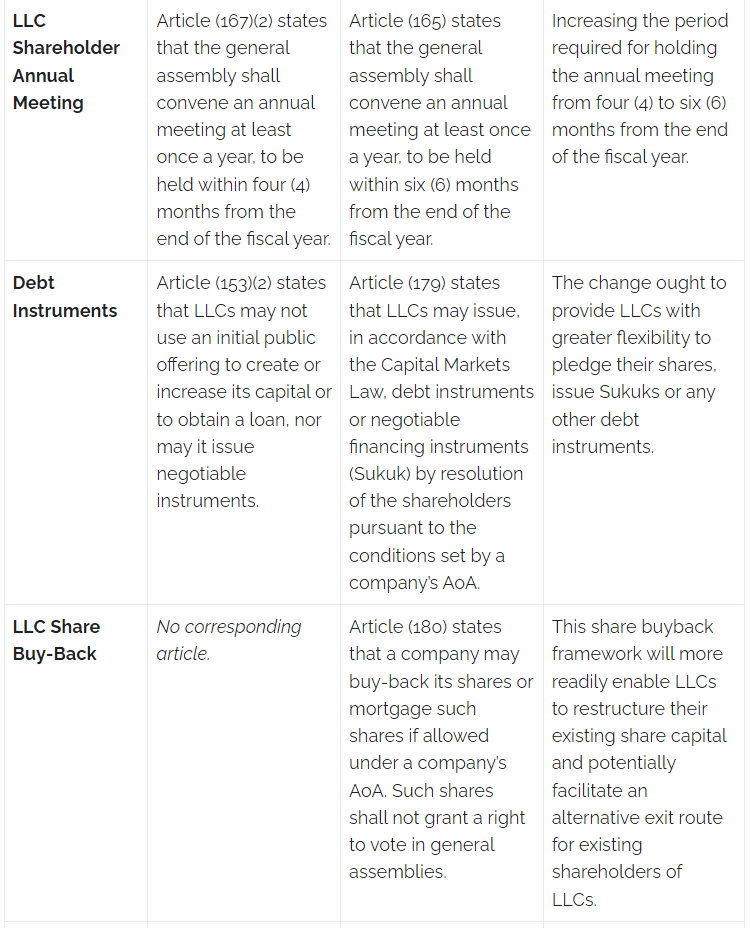
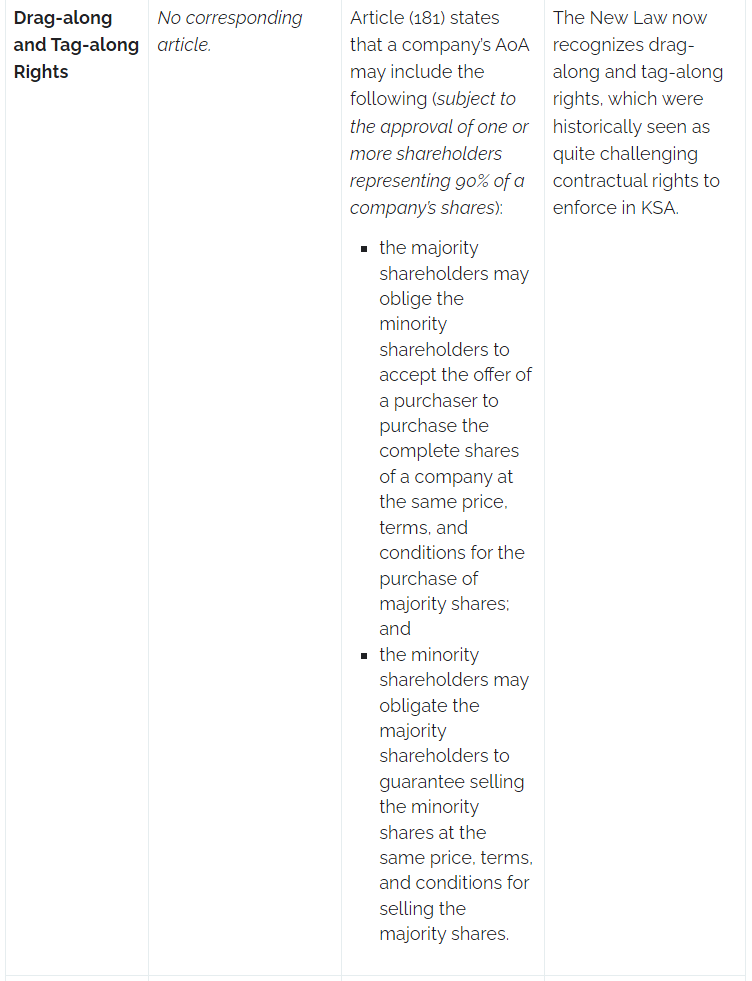
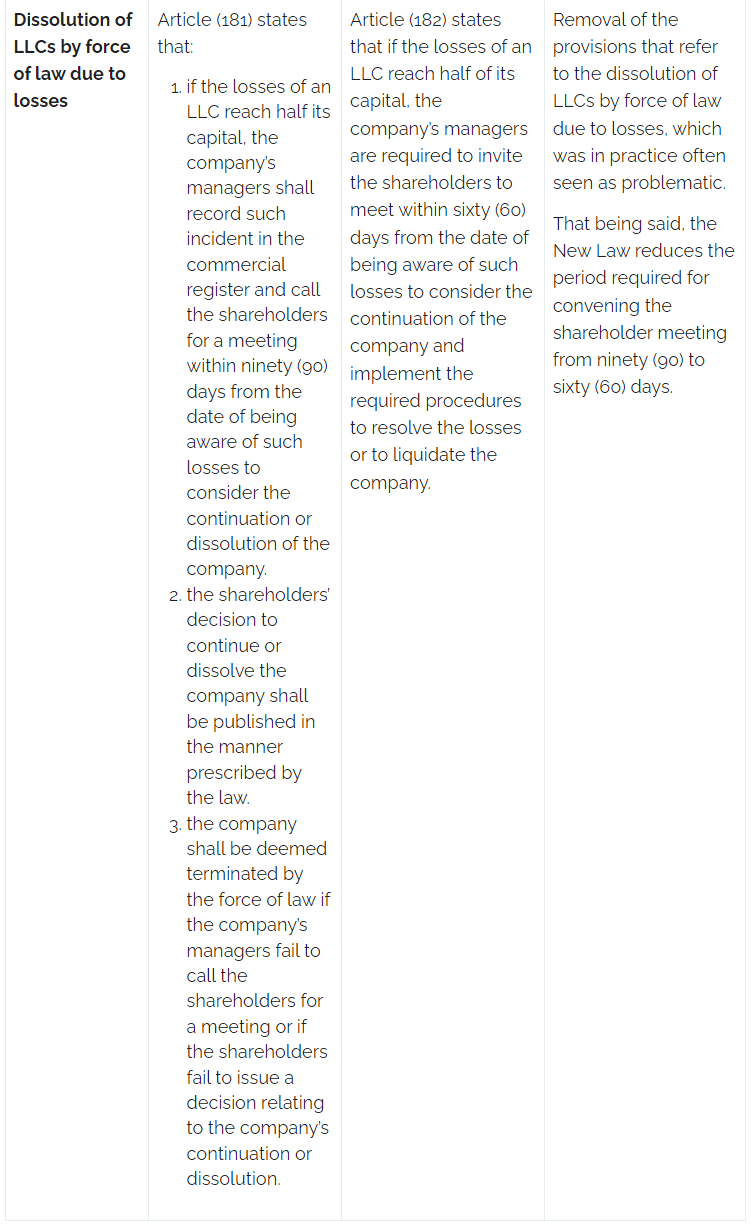
Next Steps for Companies in KSA
Although the New Law is yet to come into force, it is anticipated it will provide greater flexibility for establishing and managing companies under a new regulatory framework that is more in line with well-established international standards. At this moment in time the Ministry of Commerce has not provided any deadlines for amending bylaws or articles of association of existing companies to ensure compliance with the New Law. We however recommend companies review their bylaws and AoAs in the context of the New Law to take a view on whether any amendments are required and to consider how they can best take advantage of the new regulatory framework as contemplated by the New Law.
If you would like to discuss any of the changes highlighted in this publication, or any potential impact that the New Law may have on your business, then please do not hesitate to reach out to your usual Bracewell contacts or the authors of this publication.
1. Subject to the applicable commercial name regulations in KSA.
2. Issuance of the debt and finance instruments must be done in accordance with the Capital Market Law and Regulations.

